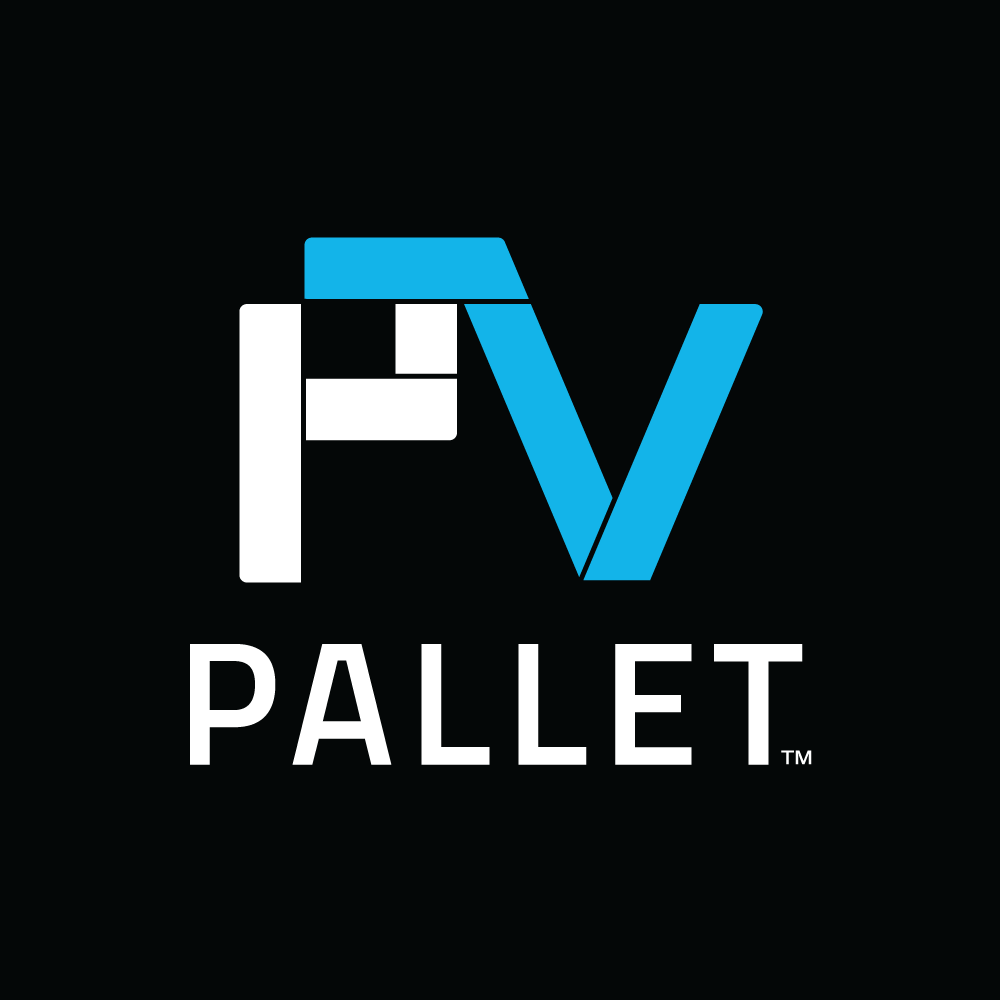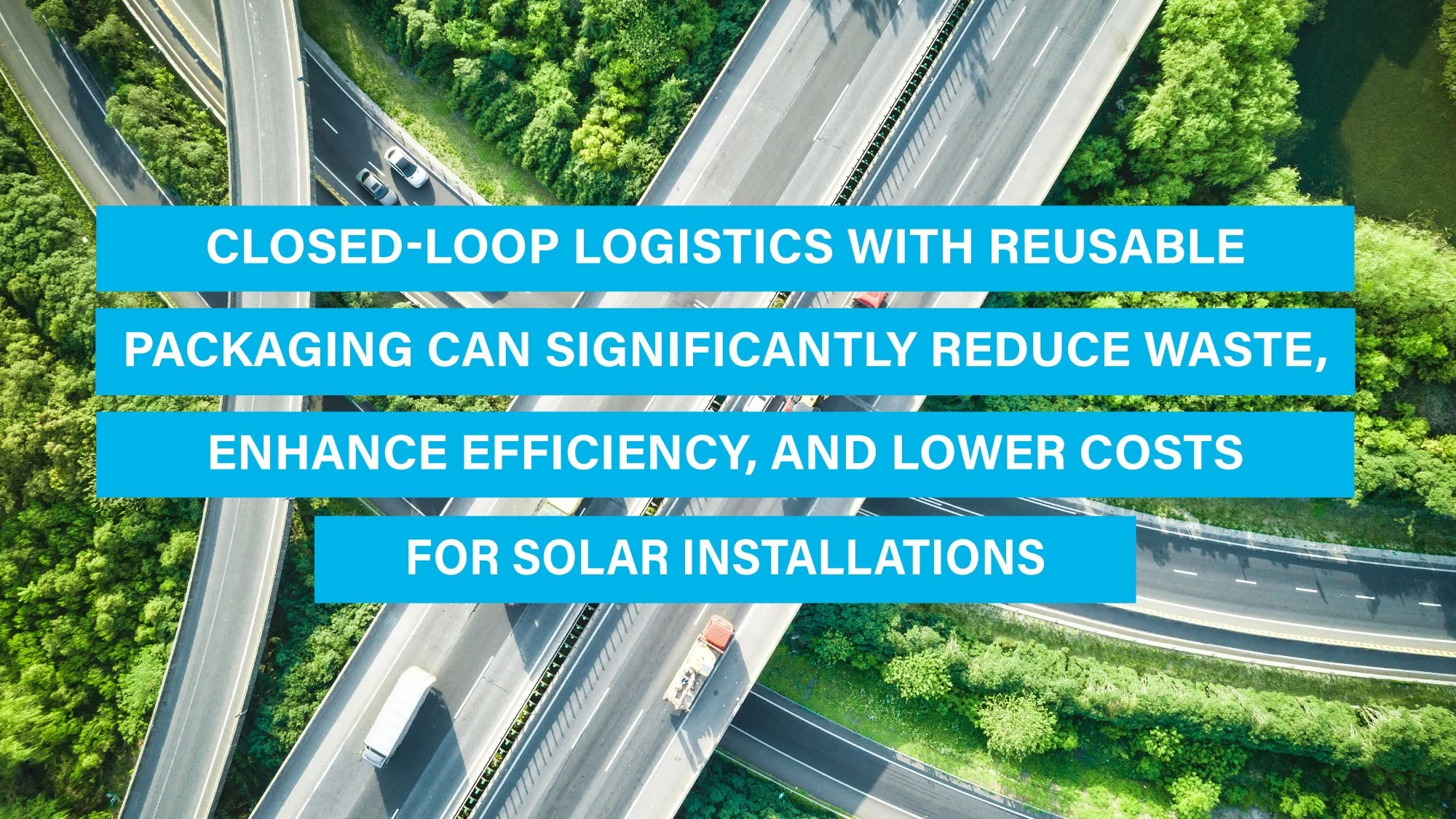What Solar Can Learn from Automotive’s Reusable Packaging Success
The automotive industry has long been a leader in supply chain efficiency, sustainable packaging, and cost-effective logistics. One of the most transformative changes in recent decades has been the widespread adoption of reusable packaging across the supply chain. By integrating bulk containers and plastic pallets, automakers and suppliers have significantly reduced costs, streamlined operations, improved worker safety, and maintained cleaner manufacturing environments. This transition also aligns with Six Sigma and Lean Manufacturing—strategies designed to minimize waste and maximize efficiency.
The solar industry faces similar challenges. Today, the industry largely relies on single-use wooden pallets and cardboard, leading to higher costs, excessive waste, and inefficient logistics. This not only drives up operational expenses but also contributes to significant environmental impact through deforestation, landfill waste, and carbon emissions from continuous production and disposal. By adopting reusable solar packaging, manufacturers, installers, and recyclers can lower shipping costs, reduce waste, minimize their carbon footprint, and better protect solar modules and balance-of-system (BOS) components.
The Shift to Reusable Packaging in Automotive
Historically, automakers relied on single-use packaging like cardboard boxes, wooden pallets, and shrink wrap. This created excessive waste, high disposal costs, and inefficiencies in storage and handling. Automotive’s transition to reusable packaging like plastic pallets, collapsible bulk containers, hand-held totes, and custom dunnage resulted in:
Significant cost savings by reducing packaging replacement and disposal expenses
Increased efficiency in parts handling and transportation
Improved worker safety by eliminating packaging-related hazards
Cleaner manufacturing environments with less debris and clutter
Better protection for fragile automotive components
These packaging improvements aligned with Lean Manufacturing strategies, helping automakers eliminate non-value-added processes, reduce defects, and enhance overall supply chain efficiency. The solar industry can achieve similar results while significantly improving sustainability through waste reduction and resource conservation. Companies like Premier PV are already paving the way in adopting reusable packaging solutions for eBOS equipment, setting a precedent for a more sustainable and efficient solar supply chain.
Key Strategies for Implementing Reusable Packaging in Solar
1. Industry Commitment and Standardization
Automotive manufacturers succeeded by establishing industry-wide packaging standards that suppliers, logistics providers, and assembly plants adopted. The solar industry can achieve similar results by standardizing reusable packaging solutions for solar modules, inverters, and BOS components, allowing manufacturers, distributors, and installers to operate within a unified system.
2. Investment in Infrastructure and Tracking
Automakers invested in specialized washing, sorting, and tracking systems to manage reusable packaging assets. RFID and barcode tracking allowed for better visibility and ensured packaging was returned and reused efficiently. The solar industry can follow suit by incorporating standards across manufacturers and suppliers as well as tracking technologies for reusable packaging, ensuring that pallets and bins are returned and efficiently managed across the supply chain.
3. Standardizing Packaging Sizes and Materials
One of the biggest challenges was aligning various stakeholders on standard packaging dimensions and materials. By collaborating with industry groups and suppliers, the automotive sector created a universal system that improved compatibility across different facilities and partners. The solar industry can benefit from similar standardization, ensuring that reusable packaging solutions can be universally adopted by manufacturers, distributors, and installers.
4. Implementing Closed-Loop Logistics
Reusable packaging thrives in closed-loop systems where containers, pallets, and bins move between suppliers and manufacturers in a continuous cycle. Automotive companies established centralized return systems to collect, clean, and redistribute packaging materials. This system kept assembly lines running smoothly and supported just-in-time (JIT) inventory management. For the solar industry, implementing closed-loop logistics for solar module and balance of system packaging can significantly reduce waste, enhance efficiency, and lower overall costs. A great example of this in action is Stateline Solar’s transformation through PVpallet Series X, where they streamlined installation preparation while reducing waste.
5. Proving Cost Savings, ROI, and Sustainability Gains
While reusable packaging requires an upfront investment, long-term savings in material costs, waste disposal, and labor make the transition economically and environmentally viable. Automotive studies have shown break-even points within a few years due to reduced replacement costs and improved handling efficiencies. Solar companies can achieve similar ROI while simultaneously lowering landfill waste, reducing emissions, and supporting corporate sustainability initiatives. For an in-depth comparison of wood versus plastic pallets in solar, check out this life cycle assessment.
The Results: Efficiency, Savings, and Protection
By embracing reusable packaging, the automotive industry has achieved:
Lower material costs by eliminating single-use packaging
More efficient logistics through standardized returnable containers
A cleaner, safer work environment with reduced packaging debris
Better part protection with durable, custom-fit solutions
If the solar industry adopts similar strategies, it can expect:
Streamlined shipping and packaging costs
Reduced waste and disposal fees
Enhanced protection for solar modules and BOS components
Greater supply chain efficiency
For a complete breakdown of different types of reusable packaging, check out this guide to plastic pallets and bulk bin containers.
The Future of Reusable Packaging in Solar
As solar deployment scales globally, integrating reusable packaging solutions will be essential for reducing costs, protecting valuable components, and improving sustainability. Transitioning to a circular packaging model will not only cut waste but also help companies align with environmental commitments, carbon reduction goals, and broader sustainability initiatives.
The automotive industry’s success provides a proven roadmap for solar companies seeking to optimize efficiency, reduce waste, and future-proof their supply chain—while making a meaningful impact on the environment.
Ready to Make the Switch?
Looking to cut costs, reduce waste, and improve logistics? We specialize in helping solar companies transition to reusable packaging—ensuring efficiency and sustainability every step of the way. Contact us today.



